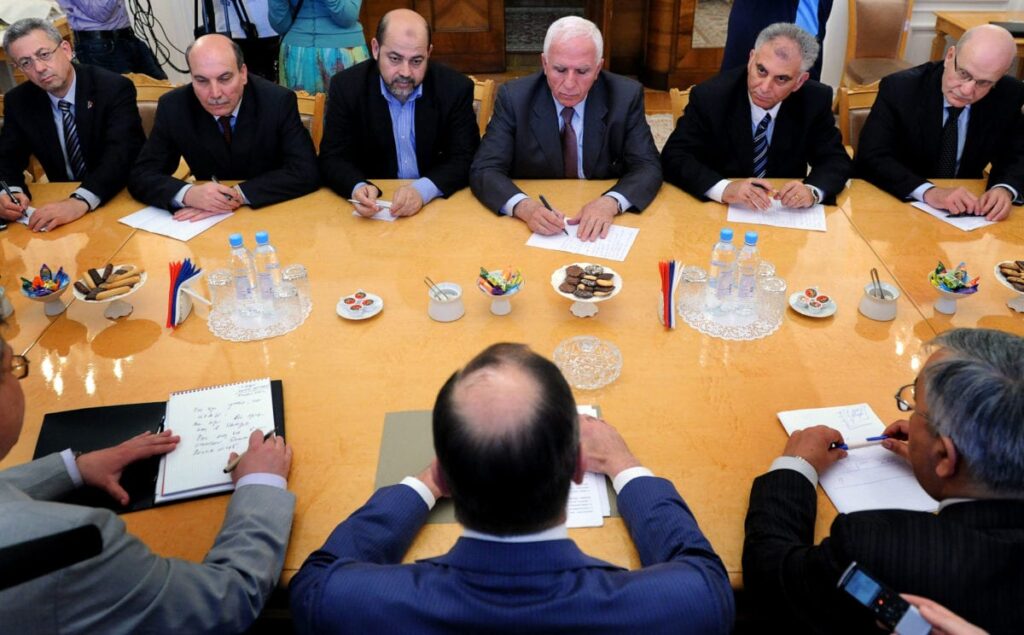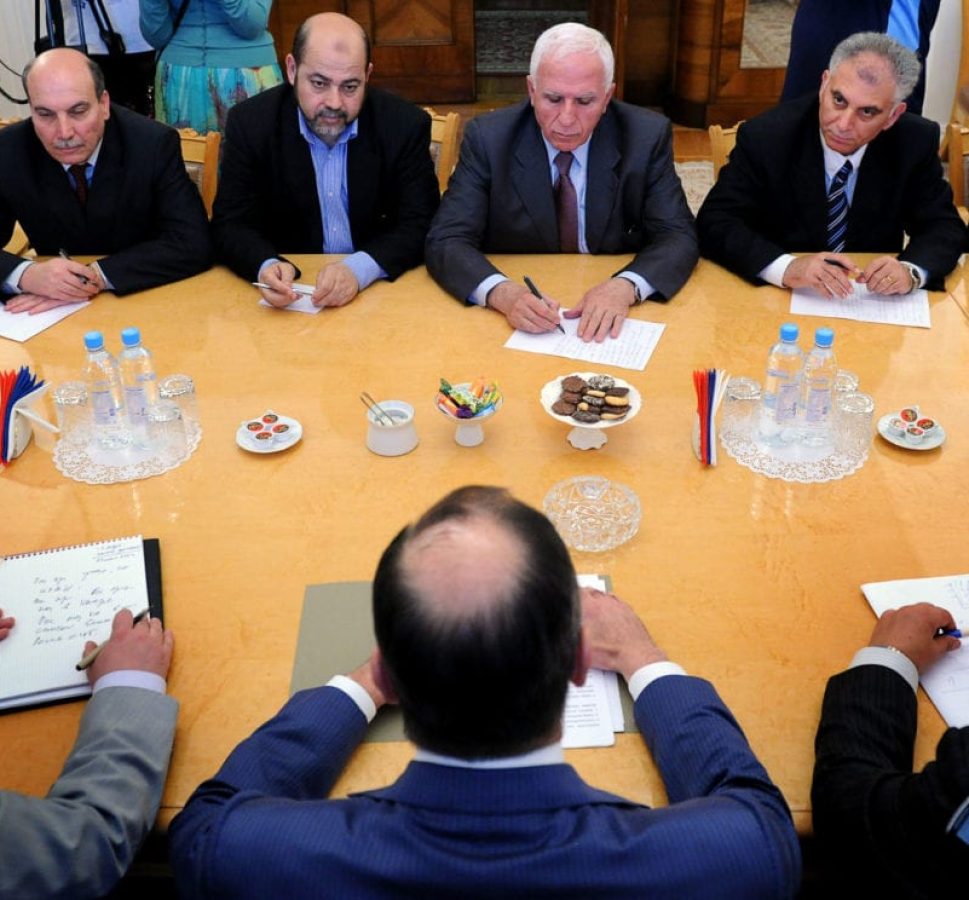
Hamas and Fatah are expected to attend a meeting in Moscow to discuss the future governance of a Palestinian state.
Representatives from Palestinian political factions, including Hamas and Fatah, are expected to meet in the Russian capital, Moscow, to discuss the formation of a unified Palestinian government amid Israel’s war on Gaza, which has killed more than 30,000 people.
Al Jazeera’s Yulia Shapovalova, reporting from Moscow, said on Thursday that while there was a lot of “uncertainty” about the meeting, it is expected to last three days for the factions to develop a “unified strategy”.
“Russia has previously held similar meetings, so we know that this time around, this is the fourth meeting of its kind, and obviously they [will] try to help to achieve reconciliation between all these Palestinian factions,” Shapovalova said.
Ahead of the meeting, Palestinian Minister for Foreign Affairs Riad Malki said on Wednesday that he did not expect “miracles” from the meeting.
“We hope that there might be good results in terms of mutual understanding between all factions about the need to support such a technocratic government that will emerge,” Malki said.
“Of course, we don’t expect miracles to happen in just a simple meeting in Moscow, but I believe that the meeting in Moscow should be followed by other meetings in the region soon.”

The meeting comes days after Palestinian Authority (PA) Prime Minister Mohammad Shtayyeh announced the resignation of his government, which governs parts of the occupied West Bank. He gave the escalating violence in the occupied territory and the war in Gaza as the reasons behind his resignation.
“I see that the next stage and its challenges require new governmental and political arrangements that take into account the new reality in Gaza and the need for a Palestinian-Palestinian consensus based on Palestinian unity and the extension of unity of authority over the land of Palestine,” he said on Monday.
Shtayyeh, who will stay in his position as a caretaker until a new prime minister is announced, said the new administration would need to take into account the emerging reality in Gaza after five months of intense Israeli bombardments.
But his resignation signalled a shift that underlines President Mahmoud Abbas’s desire to ensure the PA maintains its claim to leadership as international pressure grows for a revival of efforts to create a Palestinian state.
However, the PA, created 30 years ago as part of the Oslo Peace Accords, has suffered widespread criticism about its effectiveness, with its leaders having little practical power. It is deeply unpopular among Palestinians.
But Malki, who spoke on the sidelines of the United Nations Human Rights Council in Geneva, said the government’s resignation had been designed to prevent international partners from saying that the PA was not collaborating.
“We want to show our readiness … to engage and to be ready, just to not to be seen as an obstacle between the implementation of any process that should take further,” he said.
Israel has previously said it would not accept the PA to rule over Gaza after the war and promised to “destroy” Hamas after its October 7 attack, which killed 1,139 Israelis.
In the five months of the war, about 30,000 Palestinian civilians have been killed in Israel’s response to the attack, the Ministry of Health in Gaza reported.






